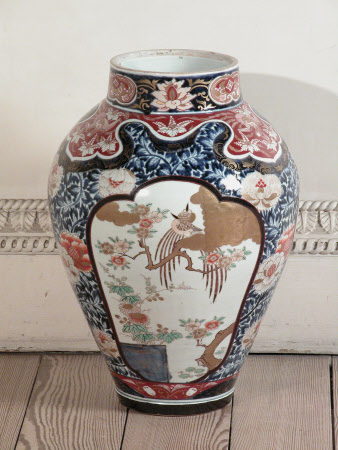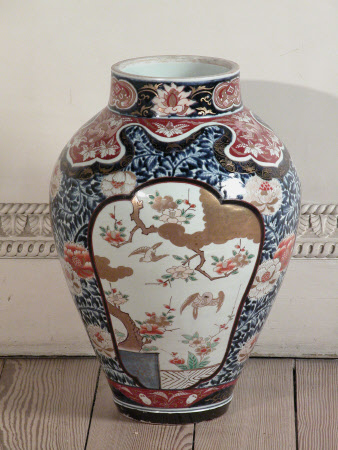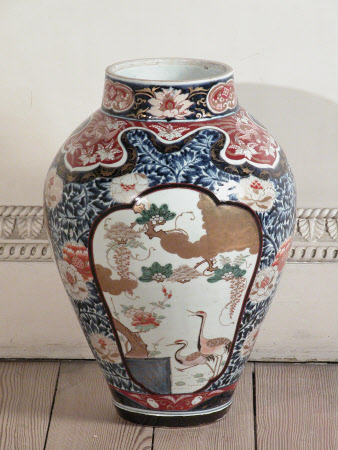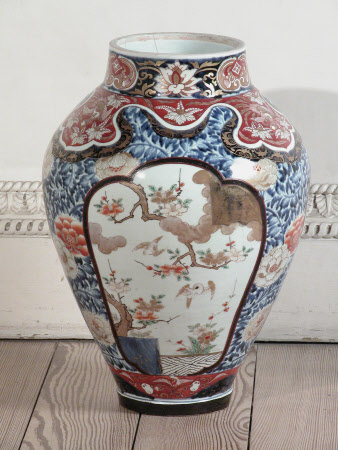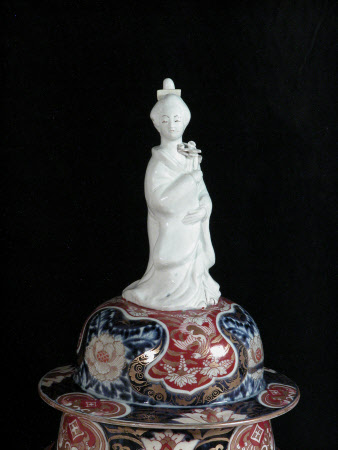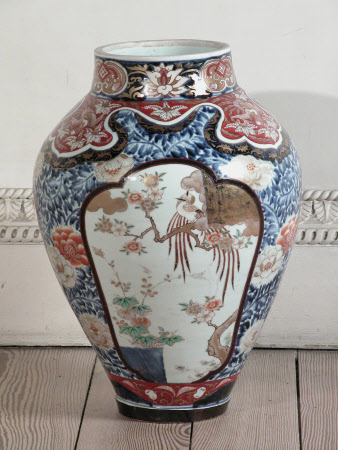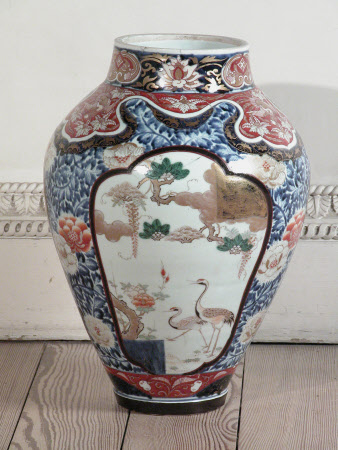Jar
Category
Ceramics
Date
1700 - 1730
Materials
Porcelain, cobalt, enamel, gold.
Place of origin
Arita
Order this imageCollection
Saltram, Devon
NT 870798
Summary
Pair of jars, porcelain, round and of baluster shape, with domed lids topped with female figures, made in Arita, Hizen Province, Japan, 1700–30, decorated in the Imari palette in underglaze blue and overglaze green, black, red and gold with stylised foliage and flowers, lobed and pointed bands around the shoulders with wisteria and phoenixes reserved against red and lobed and pointed cartouches in the centre with long-tailed birds in prunus trees with chrysanthemums.
Full description
In the early 18th century, the porcelain made at the Arita kilns for export to Europe became increasingly exuberant (Ferguson 2016). The various motifs had specific meanings in the Japanese context, but on export wares they were used more to create dense visual patterns that appealed to European late-baroque taste. In European interiors dishes such as these were used to decorate pier tables and sideboards and possibly during banquets. The areas of black or very dark blue enamel appear to have been meant to evoke lacquer, which was also in demand in Europe. Some Arita wares were decorated with actual lacquer, but it was challenging to make the two materials adhere properly. Jar NT 870841 at Saltram is also part of this group. For Imari jars decorated in a somewhat similar manner, see inv. nos. PO 5853, PO 9080 and PO 9081 in the collection of the Staatliche Kunstsammlungen Dresden, with a likely provenance from Augustus II (known as ‘the Strong’), Elector of Saxony (1670–1733) and listed in the 1779 inventory of the Dutch Palace at Neustadt.
Provenance
Given to the National Trust by Montagu Brownlow Parker, 5th Earl of Morley (1878-1962), 1957.
References
Ferguson 2016: Patricia F. Ferguson, Ceramics: 400 Years of British Collecting in 100 Masterpieces, Philip Wilson Publishers, 2016, pp. 58-9, 70-1
